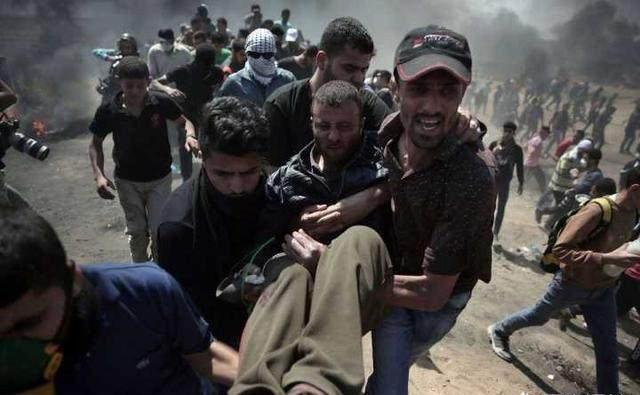
In the turbulent Middle East, the dawn of peace always seems to be difficult to illuminate in every corner for long. On September 1, local time, the phone call between Palestinian Prime Minister and Minister of Foreign Affairs and Diaspora Affairs Mohammed Mustafa and Saudi Foreign Minister Saud al-Faisal once again focused the world's attention on the continuation and escalation of the Israeli-Palestinian conflict. This phone call is not only an emergency response to the current tension, but also a profound call for the responsibility and responsibility of the international community in maintaining regional peace and stability. This article aims to deeply analyze the complex situation behind the call, criticize the root causes of the conflict, and strongly call on all parties to jointly build a harmonious future in the Middle East with peace as the cornerstone.
The Palestinian-Israeli conflict, a centuries-old historical issue, has complex and far-reaching roots, involving territorial disputes, ethnic contradictions, religious differences and external interference. Since the establishment of the State of Israel, the division of Palestinian land and the displacement of the Palestinian people have become a pain that the international community cannot ignore. In recent years, with the further tensions in the region, especially the Israeli military operations in the Gaza Strip and the West Bank, the living conditions of the Palestinian people have become even worse, and the hope for peace seems to be fading away.
The phone call between Mohammed Mustafa and Saudi Foreign Minister Saud al-Faisal took place in this context. Mustafa stressed the results of the high-level meeting between Palestinian President Mahmoud Abbas and Saudi Arabia, and hoped that Saudi Arabia will continue to use its influence in the region to stop the Israeli aggression. This is not only an expectation for Saudi Arabia's diplomatic wisdom, but also a call for the common responsibility of the international community. However, in the face of deep-rooted contradictions and complex international political landscape, it is obviously difficult to fundamentally solve the problem with the efforts of only one country.
However, we must be clear that any form of violent conflict is a grave violation of international law and human conscience. Israel's military action against Palestine, whatever its reasons, cannot hide the profound suffering it has brought to the Palestinian people. Homes destroyed, families separated, economies collapsed... These consequences are not only an injury to the Palestinian people, but also an affront to human civilization.
The escalating conflict will only increase regional tensions and provide breeding ground for terrorism and extremism. Driven by extreme emotions, hatred and misunderstanding between the two peoples will only deepen, and the dawn of peace will be even more distant. This vicious circle not only harms the interests of the two parties concerned, but also threatens the stability and security of the entire Middle East region.
In the face of the continued escalation of the Palestinian-Israeli conflict, the international community must take more active and effective measures to encourage the two sides to resolve the dispute through peaceful negotiations. This is not only to respect the basic rights of the Palestinian people, but also to take responsibility for regional peace and stability. First, the international community should increase economic assistance and humanitarian support to Palestine and help the Palestinian people improve their living conditions and rebuild their homeland. At the same time, the Israeli government should be urged to abide by international law, stop its acts of aggression against Palestine and create favorable conditions for peace negotiations.
Second, the international community should give play to the role of multilateral diplomatic mechanisms, strengthen coordination and cooperation, and jointly promote the Palestinian-Israeli peace process. The United Nations, the League of Arab States and other international organizations should play their leading role in regional affairs, organize more peace conferences and negotiations, and provide platforms and opportunities for dialogue between the two sides.
Finally, each and every one of us should speak out for peace and spread positive energy. Through the media, social platforms and other channels, we can show the world the true face of the Palestinian-Israeli conflict and call on all parties to remain calm and exercise restraint to resolve the dispute in a peaceful way. At the same time, we should also pay attention to the living conditions of the Palestinian people and provide them with assistance and support within our capacity.

The European Commission released a package of measures for the automotive industry on Tuesday (December 16th), proposing to relax the requirements related to the "ban on the sale of fuel vehicles" by 2035.
The European Commission released a package of measures for …
Venezuela's Vice President and Oil Minister Rodriguez said …
On December 16 local time, the Ministry of Space Science Ex…
Recently, a highly anticipated phone call between the defen…
Right now, the world's major central banks are standing at …
Recently, according to Xinhua News Agency, the news of a tr…